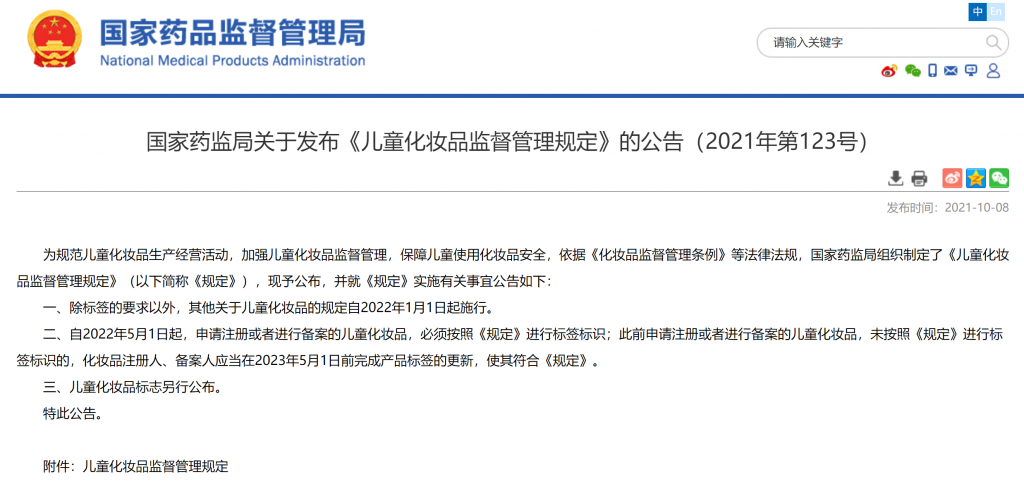
Announcement of the “Regulations on the Supervision and Administration of Children’s Cosmetics” (2021 No. 123)
In order to regulate the production and operation of children’s cosmetics, strengthen the supervision and management and ensure the safety of children’s cosmetics, the National Medical Products Administration (NMPA) formulated the “children’s cosmetics supervision and management regulations” (hereinafter referred to as “regulations”), are hereby promulgated, and to “require” the implementation of the relevant matters are announced as follows:
1. In addition to labeling requirements, other regulations on children’s cosmetics will come into effect on January 1, 2022.
2. For the labeling requirement, starting from May 1, 2022, children’s cosmetics that apply for registration or filing must be labelled in accordance with the “Regulations”; for children’s cosmetics that have previously been applied for registration or filing, they have not been labelled in accordance with the “Regulations”. The registrant and recorder shall complete the update of the product label before May 1, 2023 to make it comply with the “Regulations.”
3. The mark of children’s cosmetics will be announced separately.
Attachment:
Regulations on Supervision and Administration of Children’s Cosmetics


















